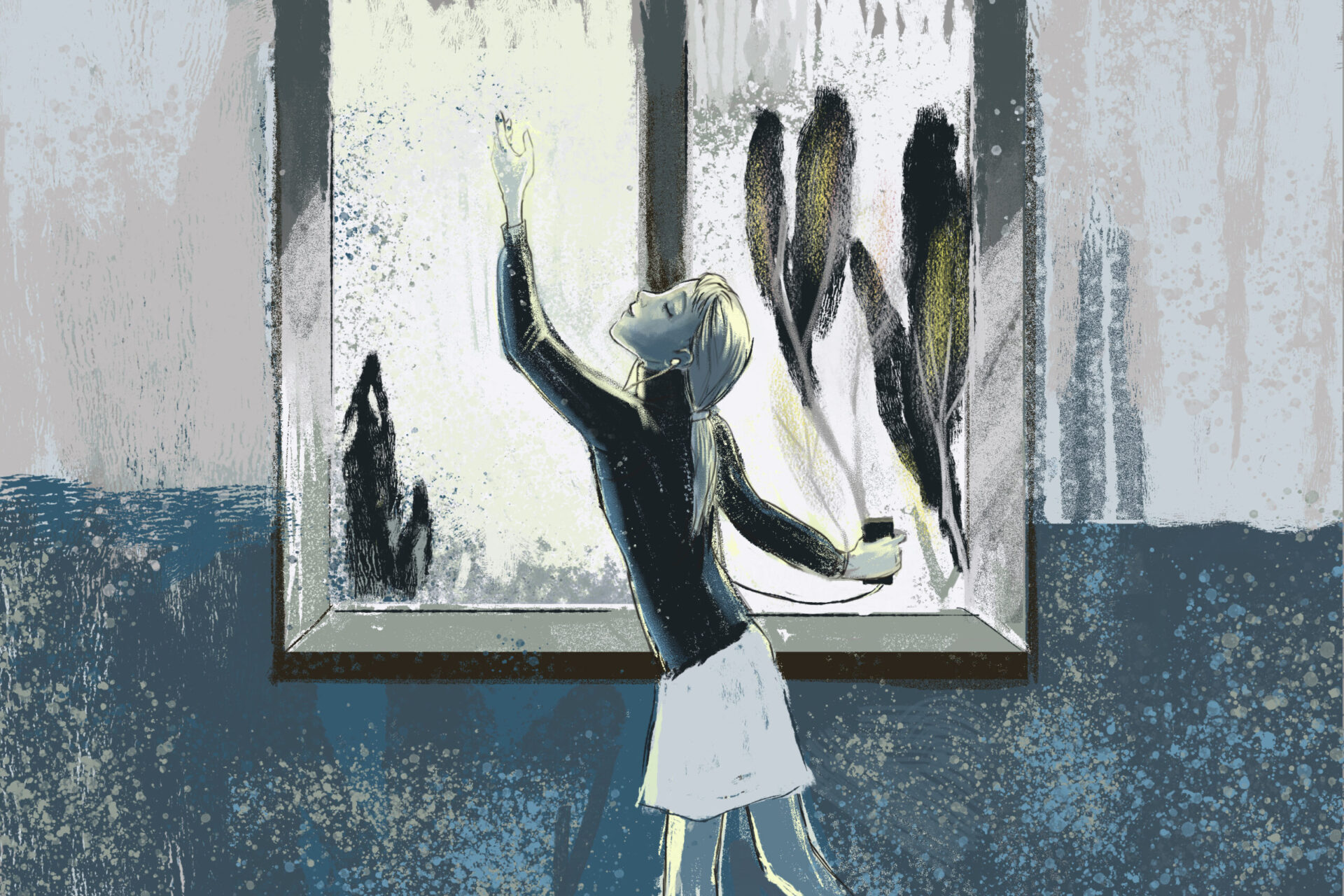
Mommy, Let Me Go
We have never met, but I can clearly imagine her dancing in the dim light of the hospital lamps. Light-eyed, blond-haired, light-skinned girl Anya, whose body started fading away so quickly. For several months, her mother, Yulia, watched her from the next bed in the ward. She knew: the day her daughter was destined to leave her would come, but she refused to accept that it would be quite soon. That it was even possible, looking at her while she was dancing and asking for candy, which she could not have for any reason. While she was willing to keep living.
Yulia remembers Anya coming out of the bathroom and dancing that Saturday night. And then she was in pain. Yulia called for a physician on call for anesthesia, but the girl was sick with blood. One and a half liters at a time. The only thing Yulia managed to do was grab one of the dishes they used for food. She already knew that the girl’s esophageal veins had ruptured, that this was the last link in a long chain of irreversible complications of liver cirrhosis, that she had to call a nurse, that urgent help was needed. Fast.
Doctors injected the girl with painkillers. She had to be transferred to the intensive care unit in a few seconds. Yulia was holding the stretcher.
“Mommy, let me go,” Anya asked.
“Here, I am not holding you anymore,” Yulia removed her hands abruptly. “They will take you to the ICU now.”
“It’s not what I mean. Mommy, I’m so tired. It’s time for me to go now. Let me go.”
And Yulia had to.
Anya lived on in the ICU for a little more than a day. She died on December 10, 2018, on the fourteenth day after her fourteenth birthday. In the last hours of her life resuscitators were trying to save her, although everyone, including physicians, understood that the changes in the girl’s body were irreversible, that, despite all the progress of science and medicine, there were things beyond human control, that, unfortunately, there comes a time, when everyone should just let a person go.
Yet, letting one’s own child go is not only unbearable, but simply impossible.
Little Death
“Before Anya was born, I watched a movie where one of the characters was a girl who was coughing up a lot of blood,” Yulia recalls. “It was the first time I heard this ugly word—cystic fibrosis. I searched the Internet, read a lot. So, when they only started suspecting Anya of having this disease, I was already shaking, because I understood what it meant.”
Everything started when Anya went to kindergarten. She was developing a strange cough, and Yulia didn’t like it. Ever since Anya was three, she could have up to 12 obstructive bronchitis every year. Yulia took her daughter to the offices of various doctors: someone said she was allergic, someone said she had the wrong diet, someone said she would outgrow it. When she brought Anya to Okhmatdyt, Yulia insisted on a sweat test, a special test that is considered to be the “gold standard” for diagnosing cystic fibrosis. Yulia says it was hard for doctors to believe that a rosy-cheeked and, as it seemed at a first glance, a perfectly healthy girl could suffer from an incurable disease. At the time Anya was just six.
“When Anya was still young, she could say something like ‘when I grow up, I will give birth to children and you will raise them.’ And I cried in response, because I realized that this might never happen.
I was told to never mind, not to listen to doctors. People just did not know, did not understand. . . Those who have never heard of cystic fibrosis probably take it gradually. But for me, when everything was confirmed, it was like a small death.”
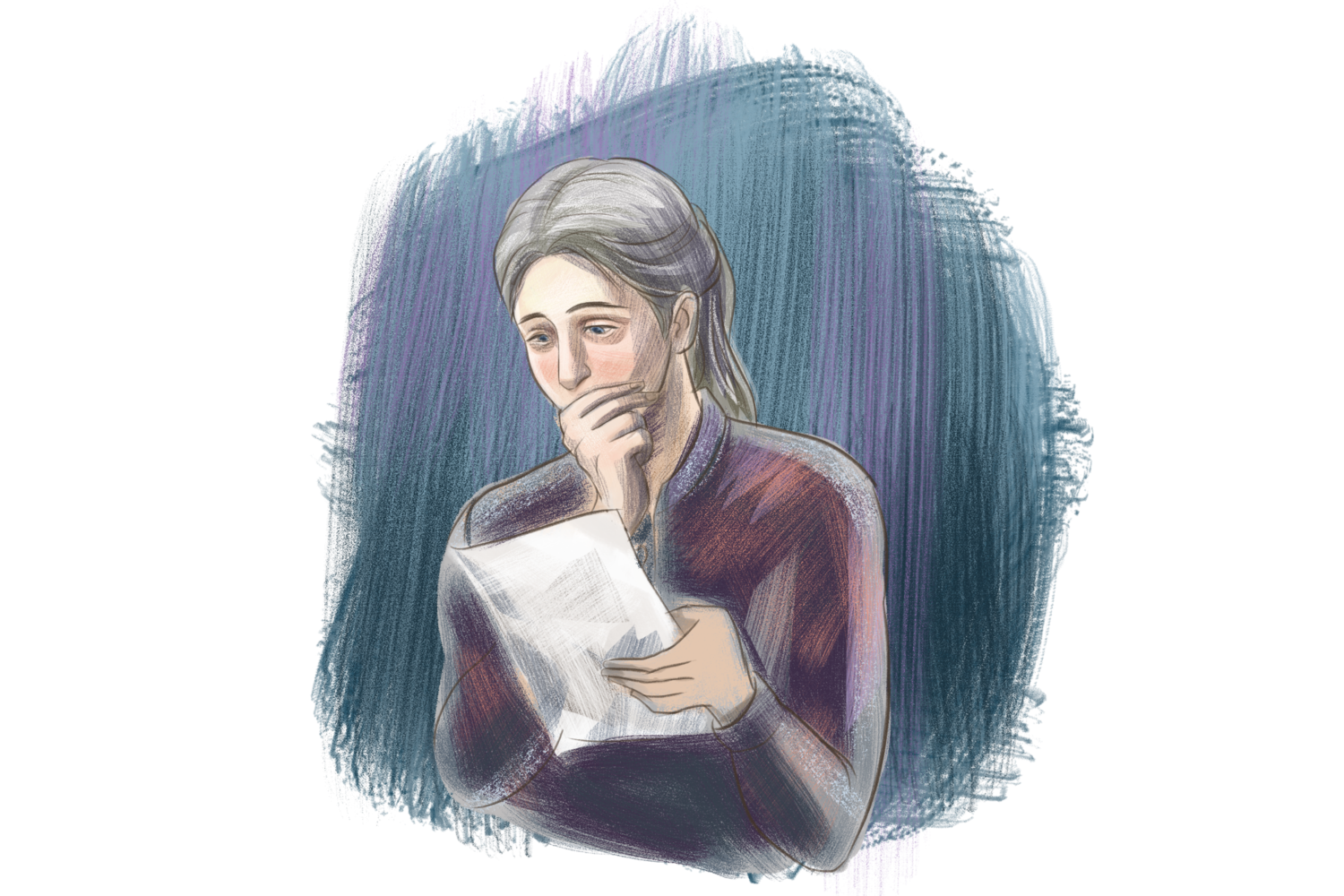
Yulia knew that cystic fibrosis was a rare genetic disease that caused disorders of the lungs, sweat glands and digestive system. The European Cystic Fibrosis Society Patient Registry states that in 2017, 181 cases of this disease were recorded in Ukraine, of which 85% were children. But today, the exact number of Ukrainians with cystic fibrosis is unknown, as there is no Ukrainian registry of patients with rare diseases.
Once Anya was diagnosed, Yulia’s life changed completely. She remembers how dramatically the behavior of the people around her changed. The ex-husband’s parents, the ex-husband himself, and some friends seemed to be trying to help, but somehow from afar—out of sight, out of mind, they say. Some pretended that nothing had happened. Some relatives said that it was God’s punishment, that they did not have such family history. Yulia stopped all communication with many, because any such phrase—which a person may have said not out of anger—could be seriously hurtful. And Anya needed her to be strong.
“People around you may not even say anything, but you understand everything. Because a healthy child is a reason to be proud, and a sick child is a cloud upon your reputation. People protect themselves from you, hide like ostriches. And you are already stressed, your child is stressed, everyone is stressed. The only way to stay mentally balanced is to stop looking at healthy children and healthy families. Therefore, only those who were ready to endure this, to delve into the problem, to observe and help when it was needed, remained by our side. And that was our whole world.”
In Ukraine, they started screening newborns for early diagnosis of cystic fibrosis in 2018. But this was not the case in the past, so doctors detected the disease mainly only when the internal organs of their patients were already undergoing irreversible changes. Anya looked like an ordinary child—healthy organs compensated for the work of the affected, so the problems were not noticeable. It was not until a year after Yulia learned of her daughter’s diagnosis that it became clear it was not just cystic fibrosis.
“I did not like one of the blood tests, so she underwent liver tests, as well. And when the results came back and I brought them to the geneticist, I was told that Anya ‘won a double jackpot’: as if it was not enough that cystic fibrosis is a rare disease, she had a rare subtype—cystic fibrosis-associated liver disease (CFLD). She did not even need extra oxygen for her lungs, the liver took all the hit.”
Anya was diagnosed with cirrhosis. A liver transplant could help, but in order for the girl’s body to accept the new organ, she would need to take immunosuppressants. For patients with cystic fibrosis, this route is risky. The only option was to transplant both, the liver and lungs, but such operations are not performed in Ukraine. All that was left was to be on medication, do special exercises, observe a diet and learn to live with the diagnosis.
Anya gradually became aware of the disease. From an early age, she had to strictly follow the rules of the diet—only home-cooked meals, no roasted or spicy foods, no potato chips or candy. The closer to teenage years she got, the more often Anya broke the rules. She was arguing with her mother because it was unfair: all her friends were trying beer for the first time and stuffing themselves with junk food, hiding from their parents, and she had to do breathing exercises and eat steamed food with Kreon pills. Anya spent a lot of time in online chats, communicating with other children with cystic fibrosis—she knew that not everyone was getting better after exercise and diet. Yulia understood everything, and sometimes allowed something forbidden, because it was impossible to limit the child forever. Both of them tried to think they lived like everyone else. And in reality, it was what it was.
“We lived together, just the two of us, so, probably, she took after me: she was cheerful, had a good sense of humor. But we did not look alike: Anya was very pretty; although, this did not prevent her from having complexes about the way she looked. She was home-schooled. One day she’d be interested in something, then she’d get tired of it. Like many children. I remember how she considered herself a great artist and was trying to get into an art school for two years. And having studied there for a year, she said that she was no longer interested. We travelled, hiked in the Carpathians. I dreamed of taking her abroad. In the summer of 2018, our friends helped us financially, the geneticist prescribed all the drugs I needed to take with us, and we went to Bulgaria. We walked along the waterfront, ate ice cream, went swimming,” Yulia takes a short break. “It was the last year. I did everything I could. Of course, I wanted to do more, but if you want to make God laugh, tell him about your plans.”
Believing in a Miracle
The first resuscitation was in the fall of 2018. It all started suddenly—during the next hospitalization Anya’s liver, which lasted so long, failed and stopped cleaning the blood. Because of this, Anya’s kidneys failed.
Resuscitators were able to stabilize her condition, but Anya had already started suffering from multiple organ failure, which meant that her body was no longer able to maintain vital functions, and no one could fix that. Multiple organ failure is the terminal stage for many diseases, due to which the patients find themselves out of therapy and in need of palliative care.
While Anya was in intensive care, Yulia was afraid to go to sleep. Day and night, she was on duty at her daughter’s bedside. The doctors criticized her, but they understood everything, so they brought the woman candy and sweet tea.
“I was afraid that something terrible would happen if I closed my eyes,” Yulia says. “Anya was thirteen at the time. I remember when we got to the hospital, she told everyone she was fourteen, she wanted to seem older than she really was. In the intensive care unit, I asked her to make it to her birthday, to submit her papers for a passport, she wanted to do that.”
Anya’s dream came true, and on November 24, together with doctors and a diet cake, she celebrated her fourteenth birthday. She seemed to be the happiest person—in the hospital for sure. At that time, doctors no longer voiced any predictions, and it was almost impossible to stabilize the girl’s body to the level at which emergency transplantation could be performed.
“The last year of her life she was thinking about death. She asked how her funeral would go, wondered if it made sense to live when she would die anyway. She asked how people would feel when she was gone, whether they would grieve for her, whether she was the person someone needed. Sometimes she had suicidal thoughts, we talked about euthanasia. She believed that she could decide for herself when to live and when to die. It is hard for me to know how serious it was, but after her death I accidentally went to her page on the social network and saw how she wrote that although she was tired of the disease, she had to take care of her health, exercise, eat no prohibited foods and not lie to her mom. So, after all, she did want to live.”
It had been a little less than two weeks since Anya’s birthday when she was brought back to the intensive care unit. This time everything was different—Yulia had to let her daughter go, let her go with the resuscitators alone, without her mother. Due to significant blood loss, the girl quickly fell into a coma. Yulia remembers how doctors constantly tried to make her run some errands: go to the ward, then to the pharmacy for medication, then to call someone to come and help and support her. Everyone wanted to know if Yulia was eating or sleeping, she had someone to talk to almost at all times. She was not constantly in the ICU, but she realized that was the end.
Could Yulia refuse the last resuscitation of her daughter?
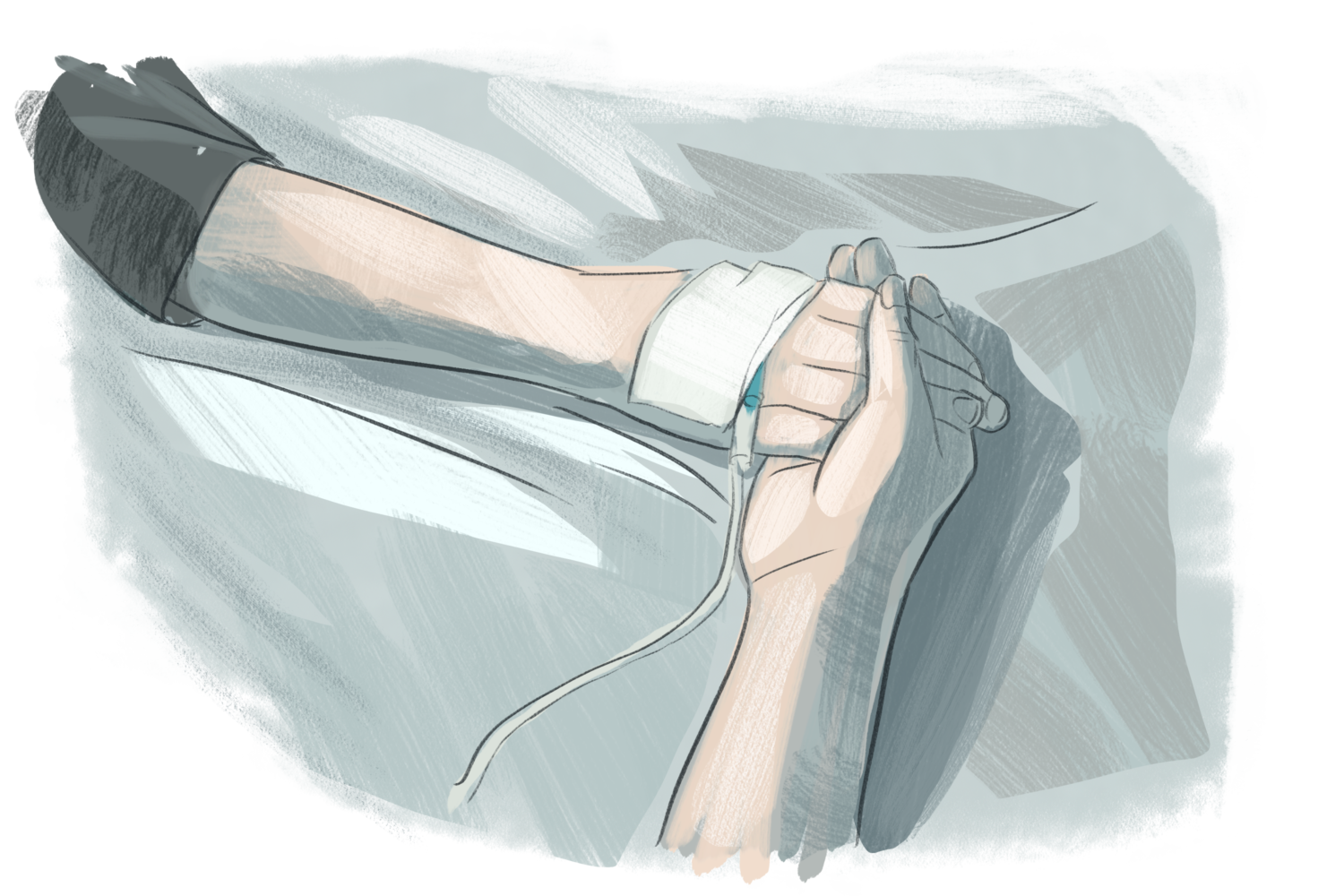
Ukrainian legislation is extremely inaccurate in regulating the issue of refusal of medical intervention. A necessary prerequisite for any medical action is to obtain “patient’s informed consent”. On the one hand, an able-bodied patient has the right to refuse treatment. On the other, the doctor has the right to intervene medically without the patient’s consent in emergencies, if, for example, there is a threat to the patient’s life. The situation is complicated when it comes to pediatric patients, because decisions must be made by parents or legal representatives.
The subtleties of giving consent to medical intervention are regulated by the Law of Ukraine On Fundamentals of the Legislation of Ukraine on Healthcare. In 2007, the article on consent to medical intervention was supplemented with the part stating that when a patient’s parents or legal guardians refuse medical intervention, the doctor must notify the child protection services. This creates additional bureaucratic obstacles, as doctors often do not want to take on such responsibility, especially when, in the long run, the case may not go in their favor. The cessation of resuscitation can be interpreted as a deliberate acceleration of death, simply put—euthanasia, which is prohibited in Ukraine.
In less than two days, Anya was brought back to life three times.
“We knew she would leave, it was a matter of hours. I asked why she was being resuscitated, they explained that it was impossible not to resuscitate children in any case, because doctors are no gods and do not know how much time is given to anyone. I have no complaints about the doctors. Well, it was as if my brain understood everything, yet I still believed in a miracle, I wanted just a little more time. . . Anya did not know anything about the stages of her disease, but found the right moment to say goodbye. It was as if an adult soul was talking to me. When she was taken to the intensive care unit, the doctors told her to wait for me. And she replied: ‘No, I will go there without my mommy’.”
Living Will
At the level of legislation, the issue of refusal of resuscitation has never been raised in Ukraine. Only in 2019 did the Ministry of Health of Ukraine update the clinical protocols for emergency medical care, translating the action plan recommended by the National Association of State Emergency Medical Services Officials (NASEMSO). According to it, the termination of resuscitation is possible in the presence of a valid patient’s order to refuse resuscitation. Yet, it is impossible to implement this action plan in Ukraine, as there is no legal form for such an order.
In Ukraine, in emergencies, one of the reasons for stopping resuscitation, in addition to the onset of clinical death, is the statement of brain death—this is an irreversible process, because brain cells do not recover. Yet, only 2% of Ukrainian hospitals have the equipment to diagnose a lack of brain activity accurately. In other cases, only a multidisciplinary team meeting can determine the patient’s brain death.
There is no consensus in the international medical community on the possibility of refusing resuscitation. Abroad, professional discussions on ethics are still ongoing between lawyers, doctors, and human rights activists, as well as on defining the criteria for who should and should not be resuscitated. With the development of medicine, the standards are updated, and some countries find certain solutions, even if somewhat flawed.
“In my life, I have faced resuscitation as a mother, as a daughter, and as a doctor,” Irina Lechner, resuscitator at the Pulmonology Department of the University Clinic of Giessen and Marburg (UCGM), begins her story. We talk via a video call.
More than 20 years ago, Irina moved from Russia to Germany for the sake of her son Roma. The boy was diagnosed with cystic fibrosis, and the UCGM is one of the best places in the world where they could help him. Roma died when he was 20. He was resuscitated at home—first by Irina herself, and then by an ambulance crew.
“Roma was well-read, he was thinking about everything realistically,” Irina recalls. “He was waiting for a transplant, when he suddenly suffered an acute pulmonary hemorrhage. Roma managed to tell me to call an ambulance. I did everything to save his life, my colleagues fought for him for a long time. As a healthcare professional I understood that the chances were slim to none, but as a mother. . . These emotions are too strong. I thought I had missed something. Of course, we could take him to the hospital and watch his organs fail one after another, just stretch that moment in time. But we decided to stay at home. And now I am grateful to my colleagues that it happened when Roma was at home.”
In Germany, the right to refuse resuscitation is regulated by a special Patientenverfügung agreement, which literally translates as the “living will of the patient”. In this document, a person can determine the medical measures that will prolong their life when the patient can no longer give their consent to medical intervention.
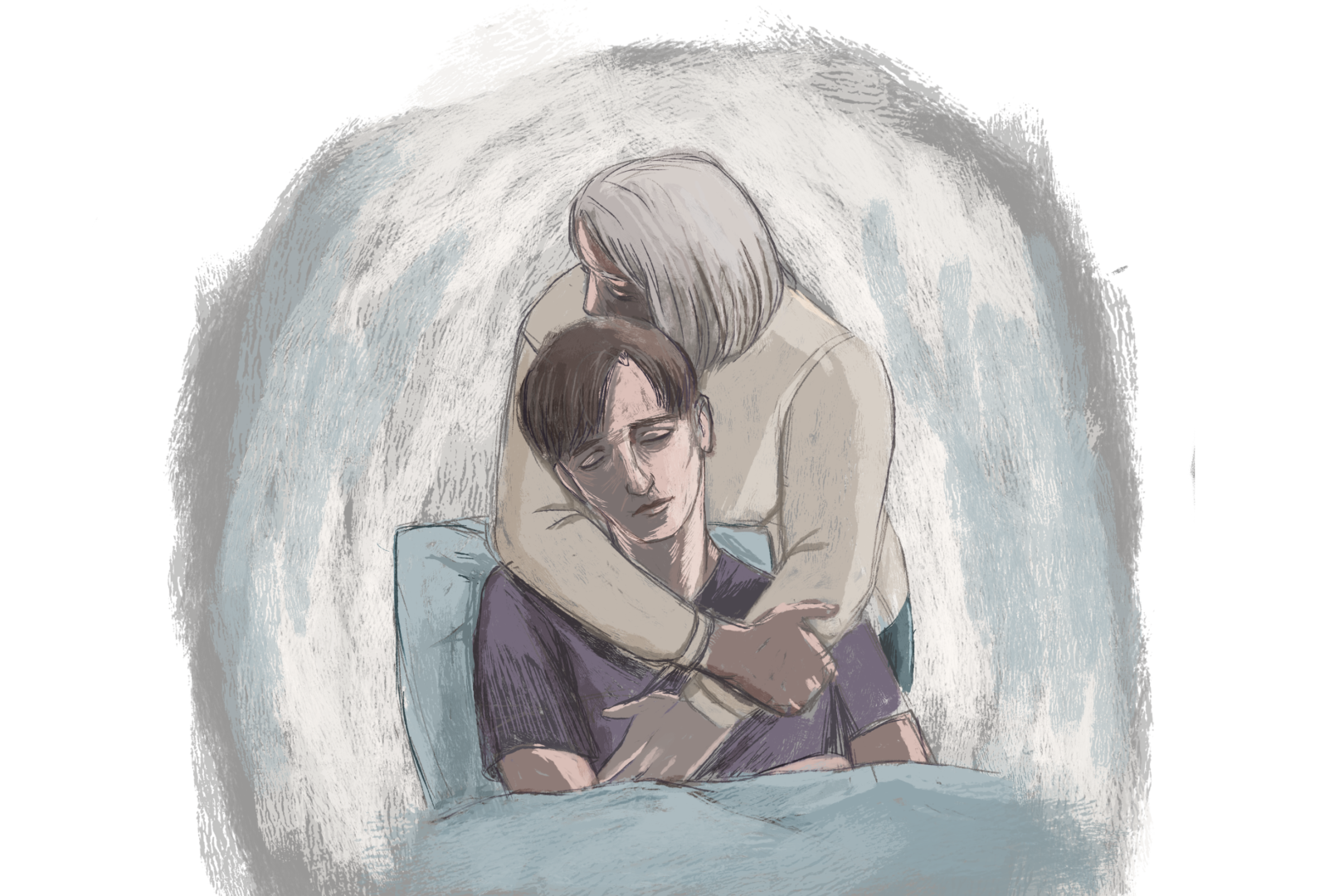
This includes connecting to various life support devices, cardiopulmonary resuscitation, etc. For minors, as well as people who are not considered fully capable, decisions in such cases are made by parents or legal representatives, but on the basis of recommendations provided by doctors.
For a doctor, the “living will” is decisive in choosing the tactics for patient management. Yet, the first resuscitation is performed no matter the case. Only after the stabilization of the body, doctors can discuss options and ways to help the patient with their relatives. Having a documented “living will” makes this process easier for all participants.
Roma was not the only loved one to whom Irina had to say goodbye due to the impotence of medicine. Her mother was admitted to the intensive care unit after an extensive myocardial infarction. Once she was stabilized, it became clear: even if doctors do everything possible, a woman would not be able to go back to the quality of life she had before. Irina had a document that gave her the right to choose how to act in such a situation. She decided to prolong her mother’s life as much as possible, but not to resuscitate her again. Earlier, the same happened to Irina’s father, but she could not make a decision then, because she did not have the necessary documents. Her dad was resuscitated to the very last moment many times. But a few days later his body surrendered.
“I am against resuscitation, when I see that it is no longer needed, that the only thing necessary is to facilitate the departure of the person,” Irina says. “So that you understand, we have everything in Germany: medication, resources, staff, a health care system that pays for any procedures. But those can be painful. The doctor sees whether a patient has a vital resource, or the doctor’s actions will bring nothing but unnecessary pain. It is not just about the age, but about the quality of life, the will to live. It is necessary to explain to relatives in simple human terms that all that can be done is to relieve pain and be there.”
No Pain
International approaches to the concept of healthcare guarantee patients the right to make independent informed decisions, in particular, regarding the last days of their life and their death. Primarily, it is about access to adequate anesthesia, about the choice of the place of death, about the possibility to refuse treatment aimed at maintaining vital functions, if the patient does not want to continue such a life.
Palliative care could prevent suffering and relieve pain at the end of life. But if there are hospices for adult patients in Ukraine, for children there are only palliative care units at hospitals, and those aren’t available in every region.
It was not until June 2020 that the Ministry of Health approved an order establishing an ethical care system, including for terminally ill children. However, this is a long process. In the meantime, children who end up in the health care system and who cannot be helped are resuscitated to the very last moment.
Yulia says that she knows some parents who choose another way instead of hospital wards and long resuscitations—to be at home and create comfortable conditions for their children on their own. Yet, in this case we have to rely on the efficiency of mobile services, because, despite the fact that Ukrainian legislation guarantees access to adequate analgesia, incurable patients can receive drugs for a maximum of 15 days.
“At the time, the main thing for me was that Anya did not feel pain,” Yulia says. “It was scary to think she might be in pain and have to wait for an ambulance to deliver morphine. Whereas doctors constantly visit the intensive care unit and provide pain relief. That is why I did not want to stay at home.”
Legal gaps in the issue of refusal of resuscitation complicate the lives of relatives of gravely ill patients, as well as the work of healthcare professionals. After all, no doctor wants to cause patients unnecessary pain.
“Given what I went through, as a doctor I can find the right words for the relatives of patients and explain what is happening, why resuscitation is no longer needed,” Irina Lechner says.
“No one has the right to hurt a person with unnecessary manipulations and difficult examinations. That is torture. Often, relatives do not understand that.”
“In such situations, my colleagues and I support each other—I can come to my boss for advice, I can cry. But I cannot make such decisions on my own—only if I have the relevant documents. And this is the task for the government: that the state reaches such a level that there is an appropriate law for all cases.”
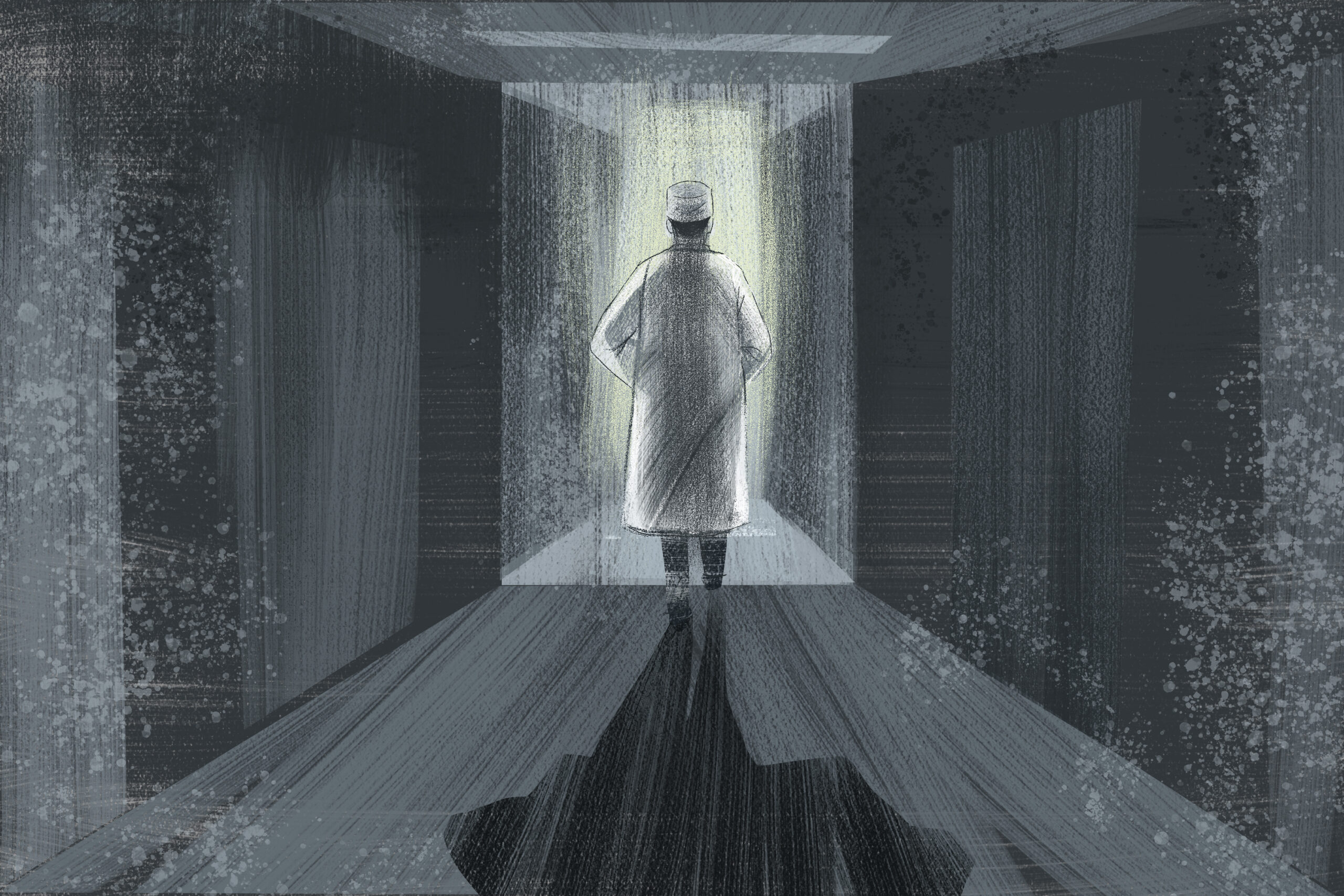
This year Irina’s son would have turned 31. It has been ten years since she lost her father, two years since she lost her mother. Irina loves her job but can no longer work in intensive care. After a course of psychotherapy, she plans to continue to be a doctor, but in another department.
It has been two years since Anya passed. Yulia remembers the first few days after her death as if they passed in slow motion. At all stages of preparation for the funeral her friends helped her. Although, she asked to leave her alone, it was obvious that it was not worth it. Yulia remembers going out on the balcony in the first year after her daughter’s death and complaining to the stars about domestic problems as if she were talking to Anya herself. She believes that now her daughter has all the knowledge of the world and that in the most difficult moments she can count on her support.
Yulia is gradually learning how to live without Anya. She is getting used to the fact that she can cook meals other than diet food, can have no daily routine, that sometimes she can relax. Once again, she allows herself to cry, to get angry, to enjoy life. She likes going to her summer cottage and work in the garden. Yulia wants to study design, to create things. She is not planning to have children, for now.
“Earlier, when asked if I had children, I did not know what to answer. But now I say: yes, I do have children. And the rest is without details,” Yulia exhales. “I believe people would not stop resuscitating their relatives if they had a choice. But this would allow the relatives of patients who have been on painkillers for a long time and have been suffering for years on devices and tubes to feel freer. Because if you know what it will be like, you do not hide from it. For us, everything happened very quickly—Anya passed when I stepped out to get some medication. When she decided to go, I accepted her decision.”
I am grateful for the comments and consultations during the preparation of this material to:
Oleksandra Teliatnykova, co-founder of the St. Luke Voino-Yasenetsky Charitable Foundation,
Andrii Beznosenko, Chief Physician at the National Cancer Institute,
Ihor Malysh, Head of the Intensive Care Unit of the Kyiv City Clinical Ambulance Hospital,
Anastasia Leukhina, co-founder of the Let Us in the ICU movement, author of Not a Scary Book at All,
and my friends Maria and Vadym, who helped with the German translation.
[This publication was created with support of the Royal Norwegian Embassy in Ukraine. The views and opinions expressed in this publication are those of the authors and do not necessarily reflect the official position of the Norwegian government.]
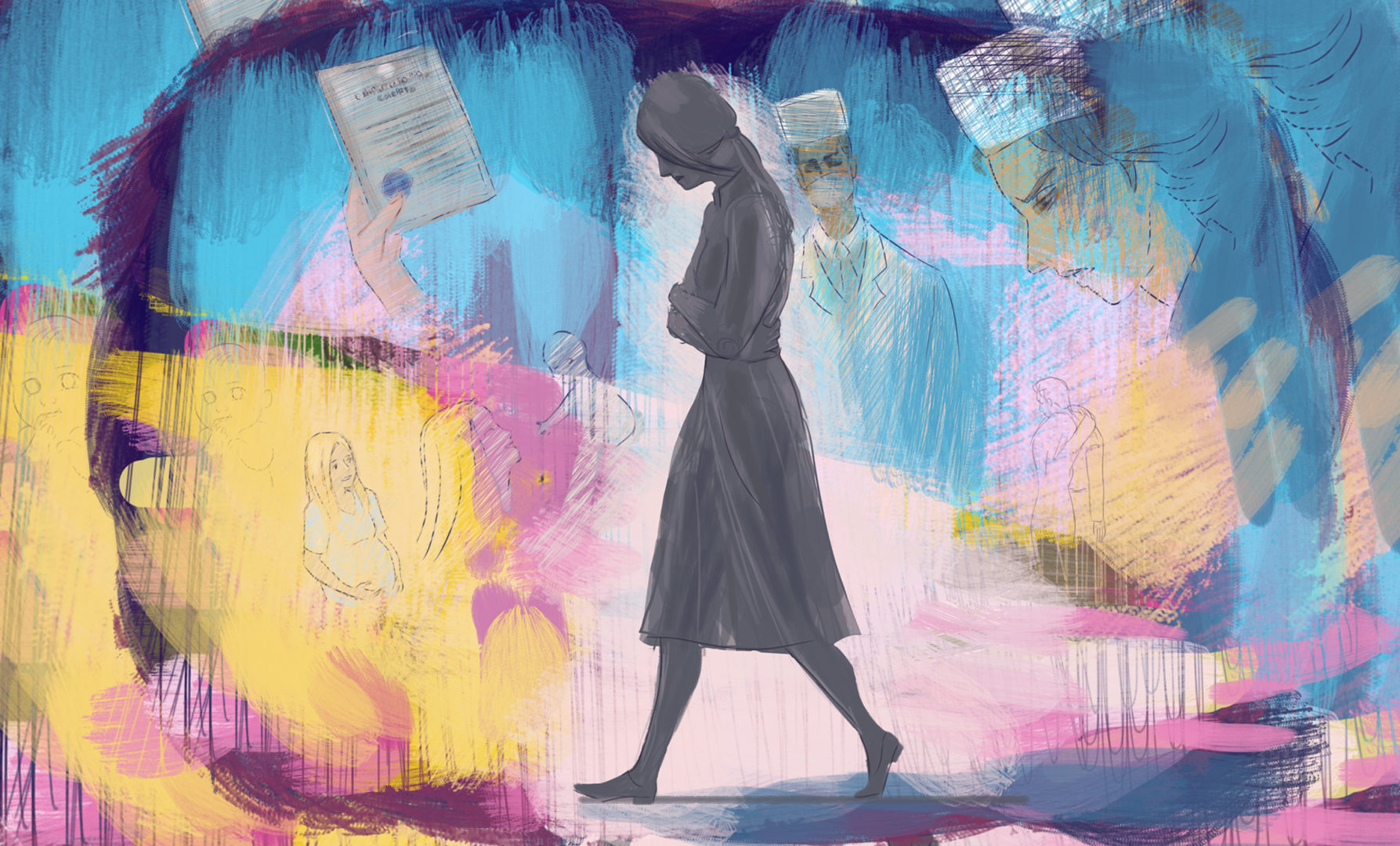
Читайте також:
Тихі пологи
Як жінки, котрі втратили немовлят, залишаються наодинці зі своєю порожнечею і самотужки заповнюють її любов’ю
Have read to the end! What's next?
Next is a small request.
Building media in Ukraine is not an easy task. It requires special experience, knowledge and special resources. Literary reportage is also one of the most expensive genres of journalism. That's why we need your support.
We have no investors or "friendly politicians" - we’ve always been independent. The only dependence we would like to have is dependence on educated and caring readers. We invite you to support us on Patreon, so we could create more valuable things with your help.
Reports130
More






